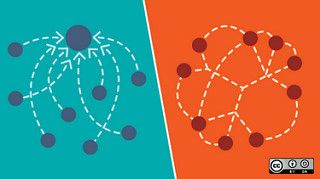CALL FOR PRESENTATIONS
3rd Annual
FIMS/MUSIC/LAW (FIMULAW)
Interdisciplinary Research Day
Friday, March 22, 2019
Law Building
The Faculties of Music, Information and Media Studies, and Law
invite graduate students and faculty to submit a poster, panel presentation,
lightning talk, and/or performance presentation to our 2019 FIMULAW
Interdisciplinary Research Day. The FIMULAW Interdisciplinary Research Day
provides faculty and graduate students an opportunity to present their work and
to engage with an interdisciplinary audience on matters of importance to
researchers across disciplines. Graduate students and faculty are welcome to
reuse posters and presentations from previous conferences.
FIMULAW Interdisciplinary Research Day is
made possible through the generous support of Research Western and the
Faculties of Information and Media Studies, Music, and Law.
SUBMISSIONS FROM GRADUATE STUDENTS
AND FACULTY FOR ALL PRESENTATION TYPES ARE WELCOME. DUE TO TIME CONSTRAINTS,
HOWEVER, YOUR DESIRED PRESENTATION FORMAT CANNOT BE GUARANTEED. YOU MAY SUBMIT
MORE THAN ONE ABSTRACT FOR CONSIDERATION.
PANEL
PRESENTATIONS
·
Panelists
should speak to this year’s topic of “interdisciplinary connections”.
·
Submit
an abstract of no more than 300 words, including a brief description of the
ways in which your research connects to FIMS, Law, and/or Music.
·
Panelists
will be given 10 minutes to speak on their topic. A question and answer period
will follow roundtable discussions and is not included in the time limit.
POSTER
PRESENTATIONS
·
Posters
on any and all topics relating to FIMS, Music, or Law research will be considered.
·
An
emphasis on interdisciplinarity is preferred.
·
Submit
a brief description (50-100 words) and poster title for consideration.
·
Posters
will be presented in electronic format only.
·
Recommended
poster dimensions: 1920 x 1080 pixels – if using Power Point: Design
tab, Page Setup, select On-screen Show [16:9]. Save as PNG.
·
Posters
from previous presentations are welcome.
A
Research Poster Workshop will be offered by members of the FIMULAW organizing
committee for those students who may be unfamiliar with the process of creating
a research poster. You can sign up for this workshop when submitting your
abstract, or email Laura Curtis for more information at laura.curtis@uwo.ca.
LIGHTNING
TALK PRESENTATIONS
·
Lightning
talks on any and all topics relating to FIMS, Music, or Law research will be
considered.
·
Lightning
talk participants will be given exactly 3 minutes to present. Visual aids are
welcome, but not required.
·
An emphasis on interdisciplinarity is preferred
·
Submit
a brief description (50-100 words) and presentation title for consideration.
PERFORMANCE
PRESENTATIONS
·
Solo
or Chamber Music presentations on creative process exploring any repertoire or
context are welcomed.
·
Presentations
should include performance and discussion of creative process.
·
Performance
Presentations are limited to 15 minutes, including set-up
·
Submit
a brief description (50-100 words) and suggested work(s) for consideration.
Please follow the link to the FIMULAW Application Form and submit your response by January 31, 2019.
Successful
submissions will be notified by Thursday, February 14, 2019.
Questions?
Please contact Laura Curtis (PhD Student, Faculty of Music) – laura.curtis@uwo.ca
photo credit: John Westrock It’s Not Over (Yet) via photopin (license)










